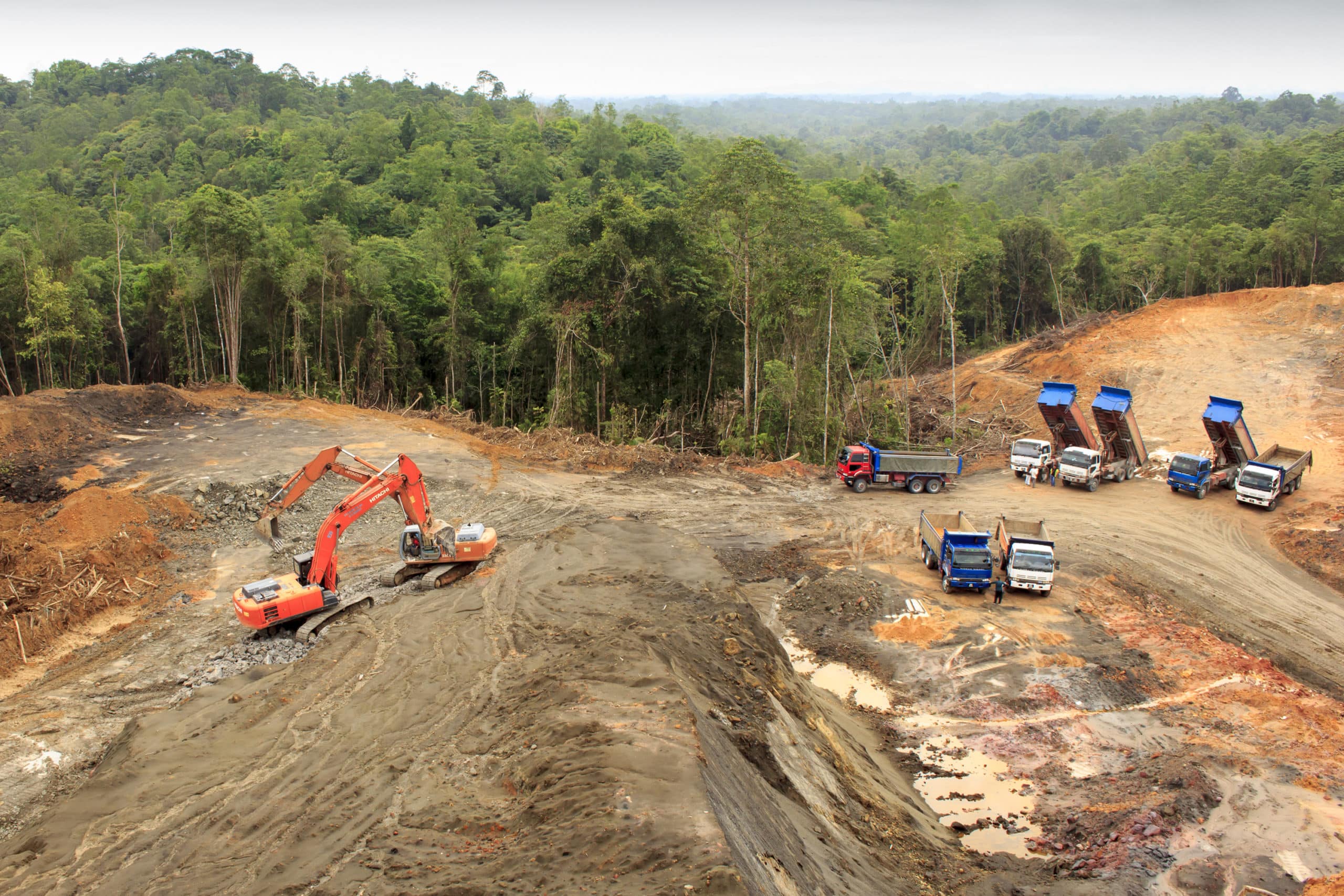
Victory Stories
Holding Multinational Corporations Accountable
The palm oil industry controls over 63,000 square miles of land in Indonesia. Every inch of this land was once biodiverse rainforest and carbon rich peatland, and much of it is still claimed by local Indigenous communities. Our partners at WALHI (Friends of the Earth Indonesia) enlisted us to pressure Indonesia’s second largest palm oil company, Astra Agro Lestari or AAL, to end its land grabbing, deforestation and criminalization of farmers on the island of Sulawesi. So our first thought was let’s see what U.S. multinational brands may be involved.
We found about eighteen global brands that were linked to land grabbing in Sulawesi. But we knew Procter & Gamble (P&G) would be a key target since the brand was so well known for its everyday products like Charmin toilet paper, Crest toothpaste or Head & Shoulders shampoo. Less well known is the fact that Charmin is made from virgin tree pulp from Canada’s boreal forests and many of P&G’s cosmetic products contain palm oil grown on land cleared of biodiverse rainforest in Indonesia. Along with many of the other brands we found linked to the Sulawesi land grab, P&G greenwashes its image through membership in the Consumer Goods Forum — a consortium of the world’s largest consumer brands, which had promised (but failed) to end deforestation in its members’ supply chains by 2020.
We got to work by putting pressure on P&G’s shareholders, like BlackRock and State Street, demanding they use shareholder power to stop deforestation. Then we teamed up with the Natural Resources Defense Council to urge big investors to vote for P&G to deal with deforestation. The effort resulted in the largest ever shareholder vote in favor of halting deforestation — and put P&G’s palm oil problem squarely in sight of its largest shareholders!
We also reached out to our members to inform them of human rights and environmental violations that were linked to palm oil sourcing in Indonesia. And they joined the fight to pressure P&G and its investors to stop fueling deforestation with over 50,000 petition signatures!
And with WALHI, our partner on the ground in Indonesia, we published a comprehensive report detailing the abuses, packed with photos of Indonesian farmers demanding action from P&G.
All of this evidence became difficult to ignore and thankfully, companies began to take action. First, Danone by ending its business ties to AAL. But P&G chose to commission an independent investigation which later affirmed what we’d been saying all along – AAL had illegal operations and were tearing down protected forests and waterways. Not to mention, AAL repeatedly sought to have dissenting farmers jailed for demanding their land back.
Yet, P&G failed to act. So we disrupted a meeting of the Consumer Goods Forum in New York City to hand-deliver a letter from over 50 indigenous and frontline land defenders to executives at two dozen companies. At the same time we filed paperwork with the Securities & Exchange Commission urging shareholders to vote against P&G’s board of directors.
And just a few days later, Nestlé announced a decision to suspend business with AAL. When Bloomberg broke the news of this, P&G promptly followed Nestlé’s lead. And by the end of that week, Hershey’s, Colgate-Palmolive, and L’Oreal had all suspended business with AAL! Two weeks later, ten percent of P&G’s shareholders cast protest votes against the company’s new CEO — sending a clear message that the company still has a long way to go.
This has been an incredible win for preserving Indonesia’s rainforest and all its biodiversity. Endangered animals in Indonesia’s Sulawesi, like the crested black macaque and the bear cuscus, have long been threatened by deforestation. And farmers and Indigenous peoples who have fought back have been subject to retaliation for standing up to AAL can celebrate as well!
Getting six major multinationals to stand up and take action is no small thing, but there is still work to be done. Neither P&G nor the other companies have taken the necessary steps to support the affected farmers to get their rights restored and their land back. We will continue our fight until our goal of justice for those affected communities is met.
More Victory Posts
Ways to Support Our Work

Read Latest News
Stay informed and inspired. Read our latest press releases to see how we’re making a difference for the planet.

See Our Impact
See the real wins your support made possible. Read about the campaign wins we’ve fought for and won together.

Donate Today
Help power change. It takes support from environmental champions like you to build a more healthy and just world.

